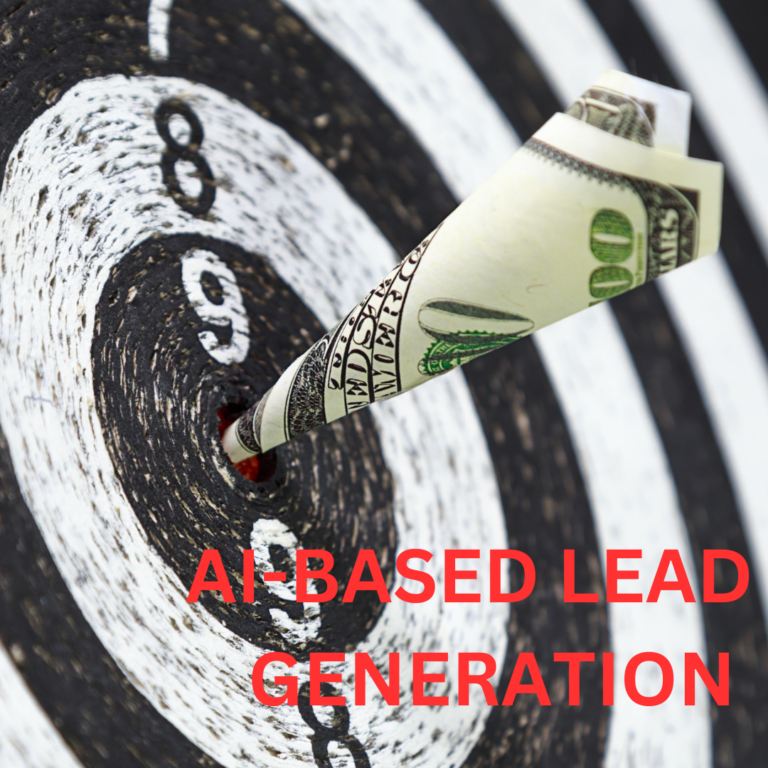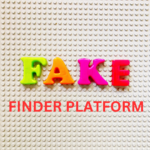In the fast-paced world of digital business, staying ahead of the competition means adopting innovative strategies that drive results. AI-based lead generation has emerged as a transformative solution, leveraging artificial intelligence to automate the process of identifying, analyzing, and converting potential customers. By integrating cutting-edge AI tools into your marketing strategy, you can optimize your outreach efforts, save valuable time, and maximize your return on investment (ROI).
This article explores how AI-based lead generation works, the tools available, ideal audiences, pricing strategies, and actionable tips to build a successful lead generation business.
What Is AI-Based Lead Generation?
AI-based lead generation involves using artificial intelligence and machine learning algorithms to identify potential customers and analyze target audiences. Unlike traditional methods, AI processes large volumes of data in real-time, providing insights into customer behavior, preferences, and buying intent. These insights enable businesses to create personalized and highly effective marketing campaigns.
Key components of AI-driven lead generation include:
- Audience Segmentation: Dividing potential customers into specific groups based on demographics, behavior, and interests.
- Predictive Analytics: Forecasting customer behavior to identify high-quality leads.
- Chatbots and Virtual Assistants: Automating initial customer interactions and data collection.
- Data Enrichment: Enhancing lead information with additional details for better targeting.
Benefits of AI-Based Lead Generation
- Efficiency: Automate repetitive tasks like data entry, allowing teams to focus on closing deals.
- Accuracy: Use AI to filter and prioritize leads based on quality and likelihood of conversion.
- Personalization: Deliver tailored messages that resonate with each lead’s specific needs.
- Scalability: Manage larger datasets and target broader audiences without increasing workload.
- Cost-Effectiveness: Reduce wasteful spending on ineffective marketing strategies.
Top Tools for AI-Based Lead Generation
Several AI-driven platforms offer comprehensive solutions for lead generation and customer analysis. Here are some of the most effective tools:
1. HubSpot
HubSpot’s AI features include advanced CRM tools, email tracking, and lead scoring. It enables businesses to monitor customer interactions and automate marketing workflows.
2. Marketo Engage
Powered by Adobe, Marketo Engage specializes in B2B lead generation, offering AI-driven predictive scoring, email marketing, and customer journey mapping.
3. ZoomInfo
This platform excels in data enrichment, providing comprehensive profiles of potential leads, including contact details and company information.
4. Leadfeeder
Leadfeeder identifies website visitors and connects them to your CRM, enabling you to track and engage with high-interest prospects.
5. SalesForce Einstein
Salesforce Einstein uses AI to analyze historical data, forecast sales trends, and prioritize leads for sales teams.
6. ChatGPT (API Integration)
Using ChatGPT or similar AI for conversational engagement can automate initial lead interactions, qualify inquiries, and guide customers toward conversion.
Who Should You Target with AI-Based Lead Generation?
AI-based lead generation can benefit various industries and target audiences. Here are some key groups to consider:
1. Small and Medium Businesses (SMBs):
SMBs often lack the resources for large-scale marketing but are eager to optimize their sales pipelines. AI-driven solutions can provide cost-effective ways to generate high-quality leads.
2. E-Commerce Stores:
Online retailers rely heavily on personalized marketing to boost sales. AI tools help identify customers with high purchase intent and recommend tailored product offerings.
3. B2B Companies:
Business-to-business enterprises require precise targeting to connect with decision-makers. AI-based solutions can analyze industry trends, identify key stakeholders, and predict their needs.
4. Real Estate Professionals:
Real estate agents can use AI to analyze market trends, find high-value prospects, and personalize outreach to buyers and sellers.
5. Marketing Agencies:
Agencies can leverage AI to streamline lead generation for their clients, providing detailed analytics and actionable insights.
How to Monetize AI-Based Lead Generation
1. Pricing Models
- Per Lead Pricing: Charge clients a fixed amount for each lead delivered. Rates can range from $10 to $300 per lead, depending on the industry and lead quality.
- Monthly Subscription: Offer a subscription model where clients pay a recurring fee for access to AI tools and lead generation services. Plans typically start at $500 per month and can go up to $5,000 or more for enterprise-level services.
- Performance-Based: Earn a percentage of the revenue generated from the leads you provide. For example, charge 10–15% of total sales attributed to your leads.
2. Upselling Opportunities
- Offer data enrichment services to enhance existing customer databases.
- Provide AI-driven analytics reports for better decision-making.
- Bundle lead generation with marketing automation or content creation packages.
Steps to Start Your AI-Based Lead Generation Business
1. Define Your Niche
Focus on a specific industry or target audience to differentiate yourself in a competitive market. For instance, specialize in lead generation for SaaS companies or real estate professionals.
2. Choose the Right Tools
Invest in AI platforms that align with your niche. Start with affordable solutions like HubSpot or ZoomInfo and scale up as your business grows.
3. Build a Website
Create an SEO-optimized website showcasing your services, pricing, and client testimonials. Include a blog section to share insights about AI and lead generation, driving organic traffic to your site.
4. Develop a Marketing Strategy
Promote your services through:
- Social media advertising (LinkedIn, Facebook, Twitter).
- Email marketing campaigns targeting potential clients.
- Content marketing, such as case studies and whitepapers.
5. Focus on Data Security
Ensure compliance with data privacy laws like GDPR or CCPA to build trust with clients. Use secure tools to store and manage customer information.
6. Deliver Exceptional Results
Use predictive analytics and personalization to provide high-quality leads, ensuring client satisfaction and repeat business.
Challenges in AI-Based Lead Generation and How to Overcome Them
1. High Initial Investment
AI tools can be expensive. Start with scalable solutions or free trials to minimize costs while building your client base.
2. Data Accuracy
Poor data can lead to ineffective campaigns. Regularly validate and update your datasets using AI-powered data enrichment tools.
3. Competition
Standing out in a competitive market requires niche expertise and superior service quality. Offer unique features like detailed analytics reports or integration support.
Potential Earnings in AI-Based Lead Generation
The earning potential depends on your pricing model, client base, and the industries you target. Here’s an example:
- Small-Scale Business: Working with 5 clients at $1,000 per month can generate $5,000 monthly.
- Medium-Scale Business: Managing 20 clients at $2,000 per month can bring in $40,000 monthly.
- Large-Scale Business: Offering enterprise-level services to 50 clients at $5,000 per month can result in $250,000 monthly.
Conclusion
AI-based lead generation is transforming the way businesses connect with potential customers. By automating audience analysis and customer targeting, you can deliver exceptional value to clients while enjoying significant revenue growth. Whether you’re targeting SMBs, e-commerce stores, or B2B enterprises, the opportunities in this field are vast and lucrative.
By leveraging the right tools, focusing on a specific niche, and delivering measurable results, you can establish a successful AI-powered lead generation business. Start today and position yourself at the forefront of this innovative industry.



